8+ Sample Hospitality Training Proposal
-
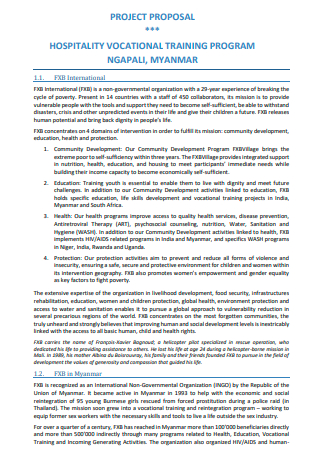
Hospitality Vocational Training Program Project Proposal
download now -
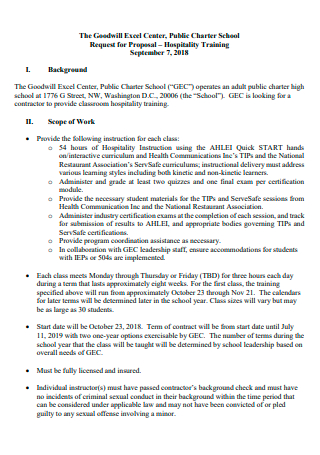
Hospitality Training Proposal Example
download now -
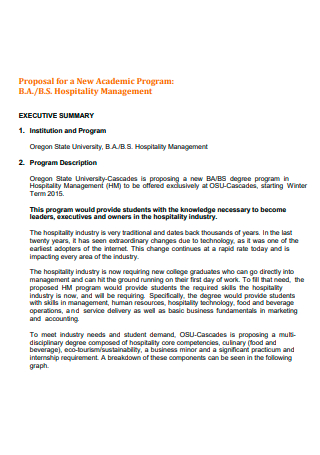
Hospitality Management Training Proposal
download now -
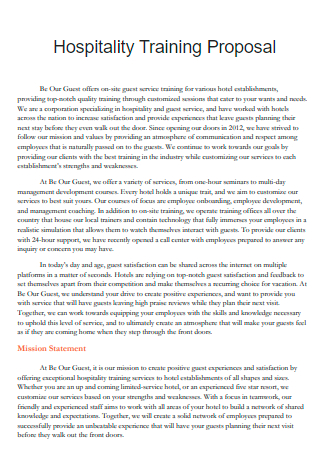
Hospitality Training Proposal in PDF
download now -
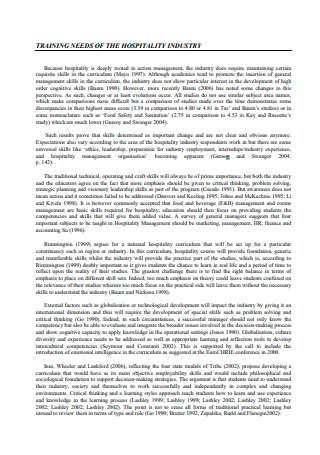
Hospitality Industry Training Proposal
download now -
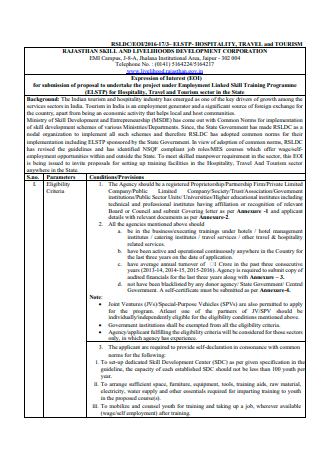
Hospitality Skill Training Program Proposal
download now -
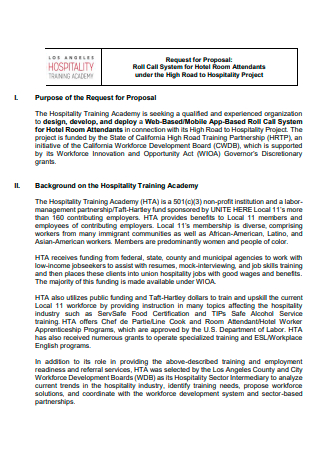
Hospitality Training Academy Proposal
download now -
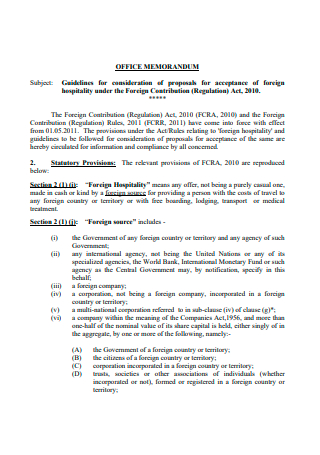
Hospitality Training Proposal Memorandum
download now -
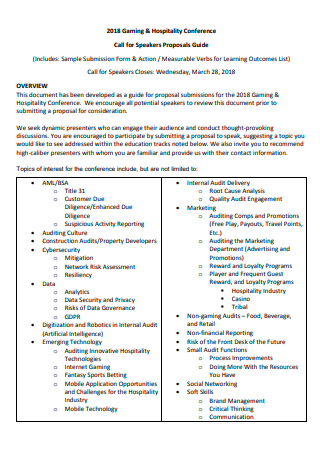
Hospitality Conference Training Proposal
download now
FREE Hospitality Training Proposal s to Download
8+ Sample Hospitality Training Proposal
What Is a Hospitality Training Proposal?
How Do People Train In the Hospitality Industry?
Areas of Hospitality Training
How to Create a Hospitality Training Proposal
FAQs
What training is needed for hospitality?
Why is hospitality training important?
What are some of the training and development for hospitality organizations?
What Is a Hospitality Training Proposal?
A hospitality training proposal is a formal written proposal meant to improve and upgrade the skills and trade of professionals in the hospitality industry. It can cover a wide range of topics and skills training, from food and beverage handling to front office management.
According to a recent article published by ProProfs.com, around 33% of hospitality organizations and companies reported an increase in their training staff and 67% of these companies also offer training in other languages apart from English.
How Do People Train In the Hospitality Industry?
Training can come in various forms. There are tried-and-tested methods as well as other unorthodox ways of learning and gaining experience. The following are just some of the common ways people train for different jobs in restaurant and hotel management.
Areas of Hospitality Training
Most people have standard ideas when it comes to the hotel and hospitality industry. You have the front desk officers, housekeeping staff, servers, doormen, etc. All these may be considered front of house or just the ones you see working in plain sight. However, there are also those employees working behind the scenes- preparing your food, doing your laundry or even keeping your guest records. There are several areas in hospitality that require special training- regardless if one is only starting out in the industry or if one is a seasoned hotelier. The examples below are some of the primary and universal areas in the hospitality trade.
How to Create a Hospitality Training Proposal
To create a hospitality training proposal, you only need the basic components of a formal proposal but modified to make it suit hospitality professionals. If you are a Licensed Trainer or coach, it is imperative for you to be able to get your message across clearly and persuasively. Follow the step-by-step guide below to get started on your own training proposal.
-
Step 1: Set the Objectives
What is your goal for creating the proposal? It must be made clear what your intentions are for coming up with a comprehensive proposal and for whom it is intended for. This section can serve as an Introductory Section so it should not be too lengthy. Depending on the format you decide, you can create simple bullet points to clearly identify your specific goals for the proposal. In this case, hospitality training can cover a wide range of topics and subtopics. So it would be best if your objectives and goals are adequately described and specified. A couple of objectives would suffice or even a sentence or two for each objective would be ideal.
-
Step 2: Indicate the Scope of Services
In this section, you need to provide sufficient background of what you intend to offer in the training. It should be an informative account of the program you plan on conveying to the trainees. Enumerate and describe the various services in your proposal. Describe the methods and strategies of your training program as well. It is important to let the client know what is expected of them and what aspects are not included in the training program.
-
Step 3: Detail the Cost and Budget
Any proposal needs some form of financial support or resources in order to execute it. Apart from creating a feasible Budget Plan, You need to be able to justify the figures that you’ve projected in your proposal. Include a detailed breakdown of the possible costs and estimated expenses of your training. The client would want to know how you intend to spend the financial resources and what amount goes into what. You can also prepare a chart or a graph if it will help you convey your projections more clearly.
-
Step 4: Formulate an Action Plan
This section should be a deeper dive into what you introduced in your list of services and proposed programs. Make sure to include details in your Action Plans. The more details, the better. Details such as topics set for each day, time, location, reading materials, resource persons and the like will add credibility to your plan. You can make use of timelines and schedules to further organize your action plan. Your proposal ought to be convincing and captivating enough for people to take interest in your plans so you will be able to execute and implement the training program accordingly.
FAQs
What training is needed for hospitality?
Apart from formal degrees in hospitality management and related disciplines, there can be several areas of training for those in the hospitality industry. Some of the most common and universal are customer service, professionalism and etiquette, food and beverage handling and other specialized skills. The type of training needed would depend on the role and position one holds in the hotel or even a restaurant.
Why is hospitality training important?
Training in hospitality is important so one may know what to expect or how to handle certain situations better. Both knowledge and skills are required for anyone who seeks a career in hospitality. More than just standard competence, the proper training and experience can help one succeed in the industry. Whether it is dealing with a difficult customer or perfecting the right dish, training can benefit anyone.
What are some of the training and development for hospitality organizations?
Training and development for hospitality organizations are varied and diverse. From communication skills, customer service, event management, teamwork and even to safety and security, these examples are just some basic training courses for hotel and restaurant staff.
Whatever your purpose is for training hospitality professionals, it is always best to tailor fit it to suit the company culture as well as the needs of the trainees. Browse and customize any of the sample training proposals above to get started on yours today!
